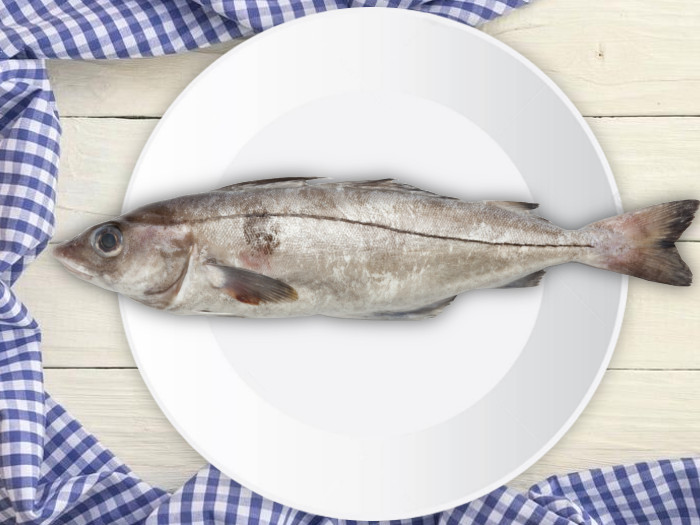Haddock is a very popular type of fish and is easily accessible in many parts of the world, but there are a few things to understand before adding it to your diet.
What is Haddock?
Haddock, scientifically known as Melanogrammus aeglefinus, is a saltwater fish that is typically found in the North Atlantic Ocean. This fish has been used in Britain for its famous “fish and chips” and has flaky, white tender flesh, which is highly oily. The taste of haddock is slightly sweet and mild, and it becomes a deeper white color when cooked. Although this fish and cod are quite similar in appearance and culinary uses, they are not the same species. One of the main reasons why this fish is so popular because it has a very low mercury content, which is one of the biggest fears when eating fresh fish. [1]

Pan-fried haddock fish is easy to make and works great for busy days when you have less time for cooking. Photo Credit: Shutterstock
Nutritional Facts
When it comes to nutrition, haddock contains about 135 calories in a 150-gram filet but is very low in fat, and very high in protein. A serving of this fish also provides vitamin B6, vitamin B12, vitamin D, and magnesium, among others. It is also quite high in sodium and potassium, along with omega 3 fatty acids. It contributes to nearly 33% of your daily cholesterol intake.
Serving Size : Nutrient Value Water [g] 71.48 Energy 116 Energy [kJ] 485 Protein [g] 25.23 Total lipid (fat) [g] 0.96 Ash [g] 1.62 Calcium, Ca [mg] 49 Iron, Fe [mg] 1.4 Magnesium, Mg [mg] 54 Phosphorus, P [mg] 251 Potassium, K [mg] 415 Sodium, Na [mg] 763 Zinc, Zn [mg] 0.5 Copper, Cu [mg] 0.04 Manganese, Mn [mg] 0.03 Selenium, Se [µg] 42.9 Thiamin [mg] 0.05 Riboflavin [mg] 0.05 Niacin [mg] 5.07 Pantothenic acid [mg] 0.17 Vitamin B-6 [mg] 0.4 Folate, total [µg] 15 Folate, food [µg] 15 Folate, DFE [µg] 15 Choline, total [mg] 92.3 Vitamin B-12 [µg] 1.6 Vitamin A, RAE [µg] 24 Retinol [µg] 24 Vitamin A, IU [IU] 80 Vitamin E (alpha-tocopherol) [mg] 0.55 Vitamin D (D2 + D3), International Units [IU] 34 Vitamin D (D2 + D3) [µg] 0.8 Vitamin D3 (cholecalciferol) [µg] 0.8 Vitamin K (phylloquinone) [µg] 0.1 Fatty acids, total saturated [g] 0.17 14:0 [g] 0.01 16:0 [g] 0.12 18:0 [g] 0.04 Fatty acids, total monounsaturated [g] 0.16 16:1 [g] 0.02 18:1 [g] 0.09 20:1 [g] 0.01 22:1 [g] 0.03 Fatty acids, total polyunsaturated [g] 0.32 18:2 [g] 0.01 18:3 [g] 0 18:4 [g] 0 20:4 [g] 0.03 20:5 n-3 (EPA) [g] 0.08 22:5 n-3 (DPA) [g] 0.03 22:6 n-3 (DHA) [g] 0.17 Cholesterol [mg] 77 Tryptophan [g] 0.28 Threonine [g] 1.11 Isoleucine [g] 1.16 Leucine [g] 2.05 Lysine [g] 2.32 Methionine [g] 0.75 Cystine [g] 0.27 Phenylalanine [g] 0.99 Tyrosine [g] 0.85 Valine [g] 1.3 Arginine [g] 1.51 Histidine [g] 0.74 Alanine [g] 1.53 Aspartic acid [g] 2.58 Glutamic acid [g] 3.77 Glycine [g] 1.21 Proline [g] 0.89 Serine [g] 1.03 Sources include : USDA [2]
Health Benefits
There are many impressive health benefits of haddock, including the following: [3] [4]
- Improving digestive efficiency
- Balancing fluid levels in the body
- Promoting stronger bones
- Improving overall health and skin appearance
- Reducing bad cholesterol
- Regulating the metabolism
- Minimizing fatty acid levels
- Promoting brain function
- Boosting heart health
- Promoting healthy cells
- Boosting immunity
- Reducing stress
- Relaxing muscle
The high levels of B vitamins, magnesium, and vitamin D also help control the blood sugar levels.
Haddock vs Cod
- The placement of the dorsal fins and the jaw of these two fish are quite different, as are the markings near the fins.
- Haddock is slightly firmer than cod but is often slimmer and smaller. [5]
- Cod live in shallower water, but the flaky white flesh and the mild flavor of these two are almost identical.
Side Effects
There are very few side effects of eating haddock, as these fish are known to be very low in mercury. However, high levels of sodium and low levels of beneficial fatty acids means this isn’t the best fish to improve your overall health. [6]
